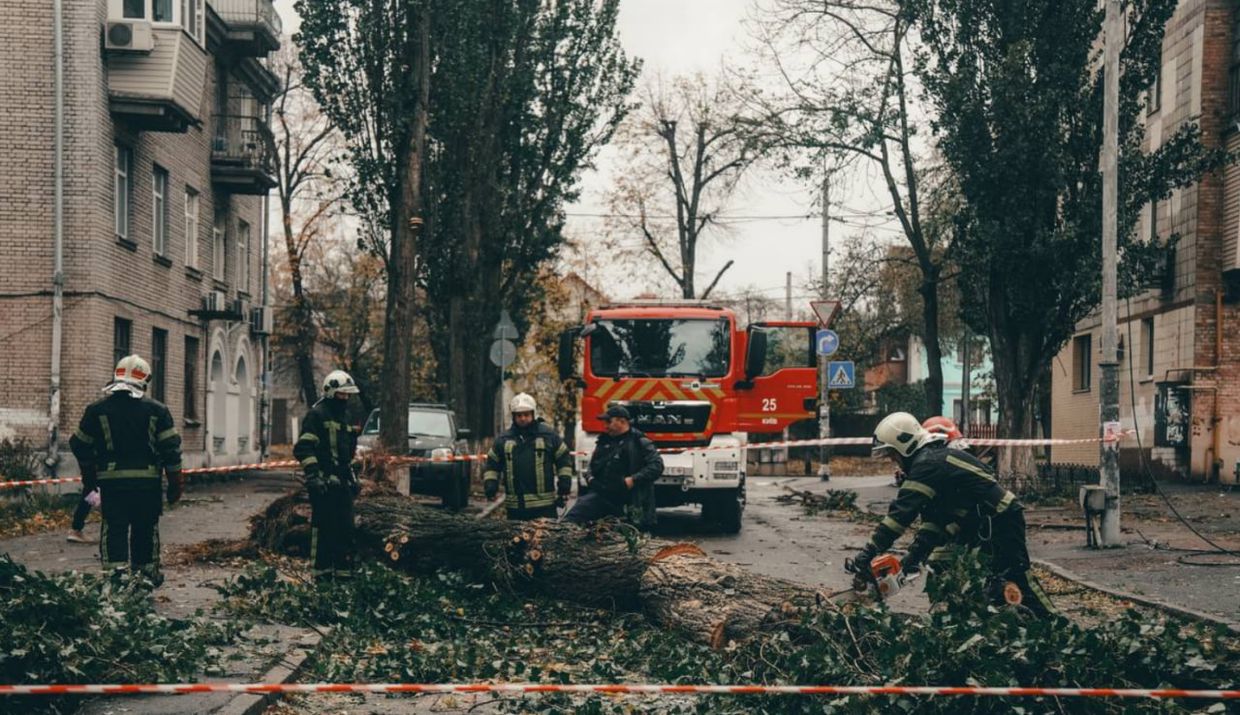Ukraine state-owned enterprises weekly — Issue 108
Editor's Note: This is issue 108 of Ukrainian State-Owned Enterprises Weekly, covering events from Oct.
21-27. The Kyiv Independent is reposting it with permission. Ukrainian SOE Weekly is an independent weekly digest based on a compilation of the most important news related to state-owned enterprises (SOEs) and state-owned banks in Ukraine.
This publication was produced with the financial support of the European Union within the project "Supporting Ukraine in rebuilding and recovery" implemented by the KSE Institute. The contents of this publication are the sole responsibility of the editorial team of the Ukrainian SOE Weekly and do not necessarily reflect the views of the European Union.
Energy sector
Ukrenergo's CEO Kudrytskyi interviewed. Ukrenergo's CEO Volodymyr Kudrytskyi was interviewed by BusinessCensor this week. We selected the key points.
On preparing for winter:
- "I do not tend to underestimate the enemy. We are preparing for the worst-case scenarios, but I think it is wrong to overestimate what the Russians are doing there. It was impossible to restore 100% of everything in these eight months.
This is because almost half of the important trunk power grid facilities and about 60% of the power plant capacity were damaged. The power system was built over decades. Therefore, in eight months, it was only possible to restore the key functions of the equipment that enabled the power system to operate.
These are electricity generation and its transmission through Ukrenergo's trunk grids."
- "Our modeling shows that today there are no bottlenecks related to the operation of our grid. Even if we take the coldest day of the year, i.e., the day with the highest consumption, the modelling shows that the grid can pass the required power. We are also currently delivering equipment that would be our reserve."
- "As for power plants, the repair campaign is ongoing.
Many power units, including nuclear ones, have already been repaired and returned to the grid. Now it is the turn of thermal power generation."
- "Ukrenergo's infrastructure is now about 85-90% restored. I don't see any reason to worry about any power cuts in the near future.
This does not account for the risk of massive missile and drone attacks."
- "We will still need imports in winter. That's why I keep saying that we need to create all the regulatory conditions to ensure that electricity imports from the EU are unhindered."
As we wrote in SOE Weekly's Issue 103, Ukrenergo reported that Russia launched another missile attack on Ukraine's energy infrastructure on Sept.
21 - the first since March 2023. See Issue 103 for more detail.
Is Ukraine's new Black Sea corridor working?
Experts say it has potential Perplexing reports earlier this week that Ukraine had suspended its temporary grain corridor in the Black Sea sparked confusion and concern. Kyiv-based Barva Invest consultancy reported on Oct.
26 that Ukraine had temporarily halted the use of its new trade route in the Black Sea due to the potenti...

In Issue 78, we reported on a large missile and drone attack on Ukraine's energy infrastructure on March 9. This was Russia's 15th mass strike, Ukrenergo said then. After every Russian mass missile attack on Ukraine's vital infrastructure in autumn 2022 and winter 2023, there were emergency outages, lasting for days due to the ongoing repair works.
During such outages, people in Ukraine were left without electricity, heating, water supply, or access to mobile phone networks. See more on the previous waves of Russia's mass attacks in SOE Weekly's Issues 66, 72, 74, and 78. On payments to solar power plants under occupation:
- "We did not know exactly what was going on until May.
But we had our suspicions. We are a trunk grid operator. That is, we do not see consumption and production separately for each of the 17 million consumers in Ukraine.
We only know the total consumption in the region or the country in megawatts. The regional data is given to us by regional power distribution companies, and they say: "Look, I have a million facilities here, and they consumed so much, and these facilities produced so much in total." They validate this data, which means they confirm its correctness."
- "We pass this data on to Guaranteed Buyer to calculate the compensation between the feed-in tariff and the market price for renewable energy producers. We also pass this data on to our own units for billing for our electricity transmission and system dispatch services.
This data is submitted in reports to the National Energy and Utilities Regulatory Commission (NEURC)."
- "In November 2022, we noticed that some regional power distribution companies were submitting us some strange data on who produced how much and how much they consumed. That is, there were some strange lines in these tables, some other revenues, some incomprehensible generation. We asked the regional power distribution companies what it was, and we informed the regulator."
Reuters: Export blockade threatens Ukraine's steel industry
Ukraine's massive steel industry has faced significant losses as a result of Russia's war and the related blockade of the Black Sea, Reuters reported on Oct.
26.
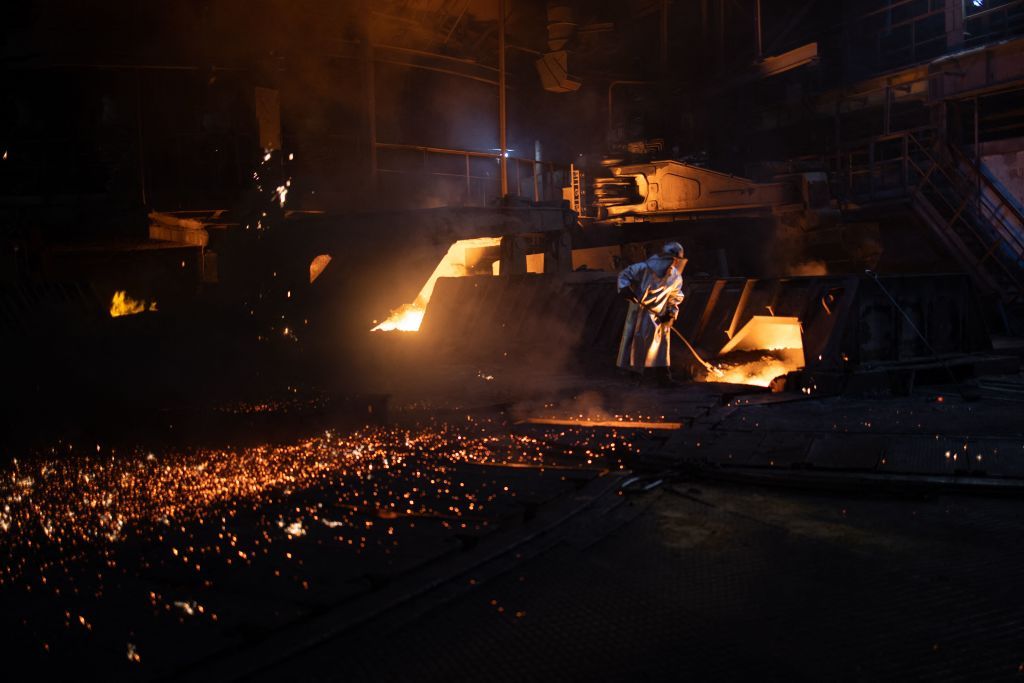
- "In April or May 2023, this situation reappeared, and we started contacting them again. Eventually, we received letters from Zaporizhzhiaoblenergo, Khersonoblenergo, and some other distribution system operators stating that "some of these solar power plants have not been operating in the unified energy system since July or (some) since November last year." We informed Guaranteed Buyer about this. We tried to solve this problem for several weeks."
- "The payments stopped in June 2023.
I initiated a meeting with the NEURC and Guaranteed Buyer, at which it was decided that the data on the facilities in the occupied territories would not be considered in the settlements between Guaranteed Buyer and solar power plants. The minutes of the meeting that formalised this decision was signed before the journalists' investigation was published. But, of course, public attention to this process has accelerated the reaction of all stakeholders.
Everyone realises that something needs to be done in this area."
As we reported in Issue 105, Ukrenergo would be inspected by the NEURC over payments to solar power plants under occupation. Earlier, in August 2023, Bihus.Info reported that solar power plants under Russian occupation, co-owned by the entourage of Deputy Head of the President's Office Rostyslav Shurma, allegedly kept receiving payments under the green tariff until the summer of 2023, although they were probably not connected to Ukraine's unified energy system. In particular, Bihus.Info reported about KD Energy 2 LLC and Renewable Energy Zaporizhzhia LLC, co-owned by Shurma's brother, Oleh Shurma.
The co-owner of another two companies - Green Energy Tokmak LLC and Grandpower LLC - is Ruslan Bozhko, who is Rostyslav Shurma's former subordinate and is considered to be closely related to him, Bihus.Info said.
Media: Europe continues to import over £14 billion of Russian raw materials Since the beginning of the full-scale invasion of Ukraine, the European Union has continued to import billions of euros worth of "critical" raw materials from Russia, media outlet Investigate Europe highlighted in a report on Oct.
24.
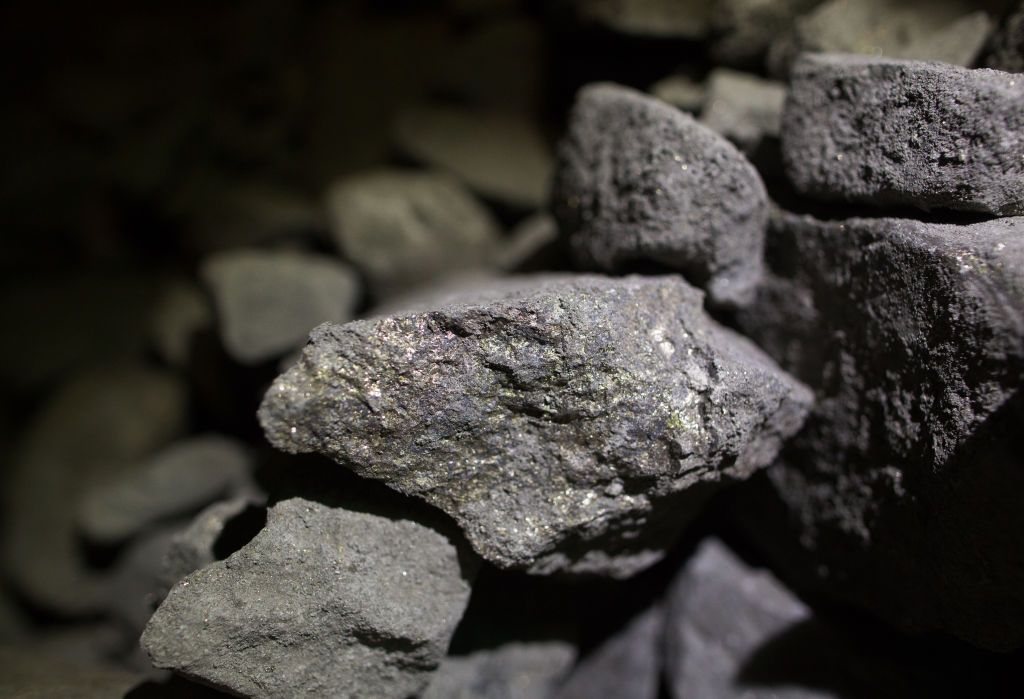
According to the media, from July 2022 to July 2023, these companies collectively received more than Hr 320 million (£8.8 million) in payments for electricity at the green tariff from the Guaranteed Buyer. See more detail on this case in Issue 105.
On the search of Ukrenergo's headquarters and state audit:
- "For example, the figure of Hr 68 billion (£1.8 billion) of inefficiencies, violations and so on, announced by the State Audit Service of Ukraine (SASU). Of this, Hr 36 billion (£990 million)... is a position in the balance sheet called the "corporatisation effect." That is ... when we were corporatized, the state did not transfer all our property to us. Trunk networks are not subject to transfer of ownership under the law.
- That is why we showed it as an asset on the asset side of the balance sheet, and we must show something on the equity side.
We put this as the corporatization effect.
- For three years, international auditors confirmed everything. We (even) placed (our bonds) on the London Stock Exchange (which requires an international audit, among other things - SOE Weekly). But the SASU (think they) know better.
And they said that the name (of this balance sheet line) was wrong, and it did not comply with Ukrainian accounting standards. So, we changed it. But they still wrote Hr 36 billion for some phantom violations.
And this, in fact, discredits their entire report."
- "In general, I have to say that this does not look like an audit at all. I say this as a certified auditor. This has nothing to do with audit, it looks more like either some kind of profanation or some kind of attack."
(According to Ukrenergo's website, Kudrytskyi has profound professional experience in audit.
Among other things, in his earlier career, he served as Operations Manager and Director for Internal Audit at leading international and Ukrainian companies: MHP S.A., EastOne, TNK-BP, and Grant Thornton. He is a member of the UK's Association of Chartered Certified Accountants (ACCA), and a Certified Internal Auditor (CIA) of the US Institute of Internal Auditors (IIA).
- "Because we consider the SASU's conclusions to be unfounded, unprofessional, and sometimes absurd, we did what the head of the SASU, Alla Basalaeva, recommended - we are challenging the audit results in court.
Despite risks, Ukraine's largest retailers returning to front-line and liberated areas One of just two Okko gas stations along the road to the Russian-occupied city of Bakhmut in Ukraine's eastern Donetsk Oblast has seen better days.
Last winter during a nighttime Russian artillery strike on Kostiantynivka, around 20 kilometers from Bakhmut, debris crashed through the roof and landed...
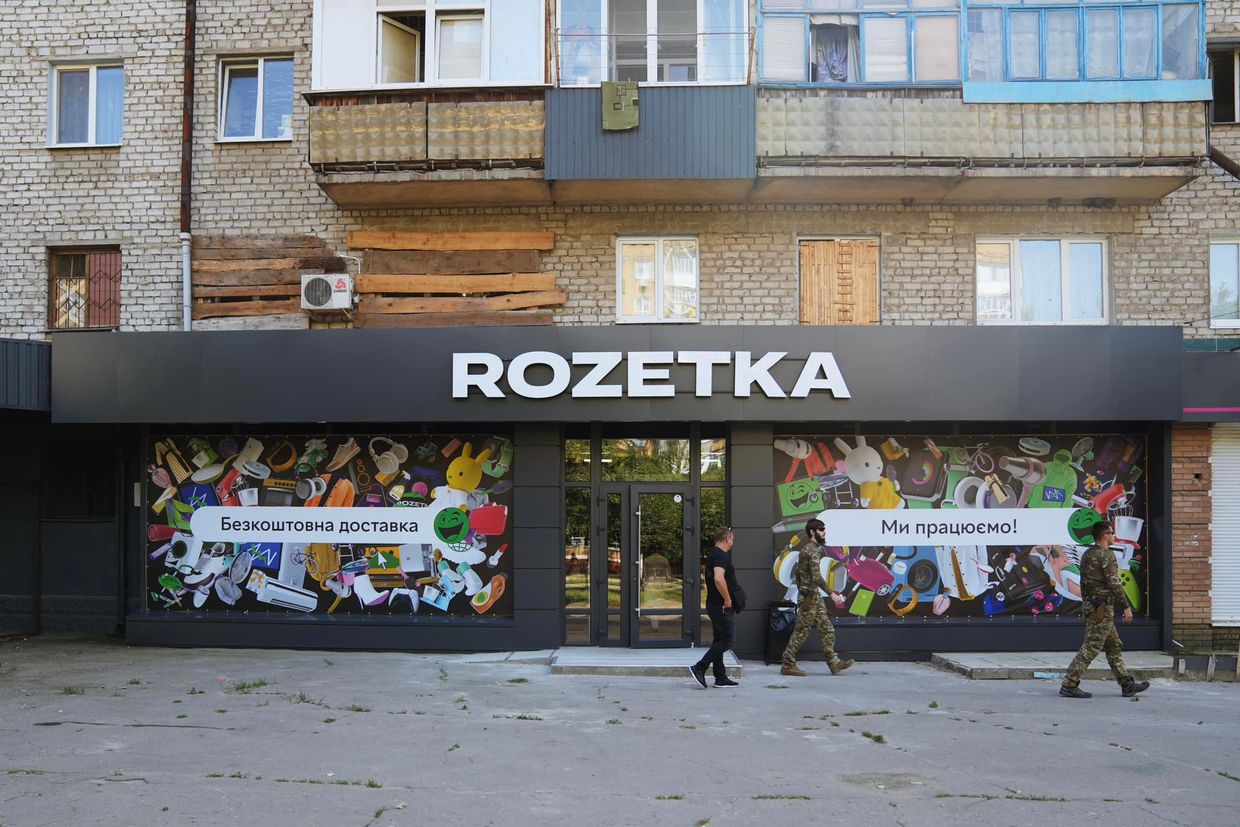
According to the SASU website, Basalaeva was an in-house lawyer at the Central Elections Commission of Ukraine from 2005 to 2012, where she mostly dealt with representing the Commission in courts. She served as a judge at one of Kyiv's courts from 2012 to 2018. Basalaeva was a member of the Central Elections Commission for one year in 2018-2019, and then taught constitutional and administrative law at an aviation university.
In an earlier interview to Forbes Ukraine, Basalaeva said that if companies audited by SASU did not agree with the conclusions of the audit reports, they should challenge them in court.
- "On Oct.
10, the Kyiv District Administrative Court satisfied part of Ukrenergo's claims. In other words, the court recognised that at least some of the claims of the SASU auditors against us were unfounded. Of course, we would appeal and prove that the rest of the SASU's claims also lack grounds.
However, this court decision confirms that the SASU auditors performed their work in relation to Ukrenergo at least poorly."
- "There is definitely pressure from law enforcement, and we feel it. How does it work? Auditors ask law enforcement officers what their complaints are against the company.
The law enforcement officers give them a list of episodes that they believe may be grounds for complaints. The state auditors must reflect these episodes in their opinion. It does not matter whether they are justified or not.
In other words, auditors simply "sanctify" further actions of law enforcement officers in relation to the company.
- Then the law enforcement officers come to us and say that if the auditors have drawn attention to certain episodes, then there is definitely some negative case that needs to be investigated. And the biggest problem is that this system has nothing to do with establishing the truth or identifying any real violations."
As we wrote in Issue 103, Ukrenergo reported that the Prosecutor General's Office (PGO) searched its head office by order of the Pechersk District Court issued on Aug.
30. See more detail on this case in Issue 103.
Naftogaz takes over another two of Firtash's gas distribution companies. On Oct.
20, Gas Distribution Networks of Ukraine LLC (Gazmerezhi brand), a Naftogaz subsidiary, reported that Volyngaz came under state control and joined Naftogaz Group. According to the company, this was driven by the need to address strategic energy challenges in the event of hostile attacks on the grid. Volyngaz distributes gas to budgetary organizations and more than 250,000 households in the region, Gazmerezhi added.
On Oct.
24, Gazmerezhi reported that Chernihivgaz was also placed under the management of Naftogaz Group.
Reuters: War in Ukraine boosting US defense industry The U.S. defense industry has seen increased profits as the U.S. has sought new contracts to refill depleted domestic stockpiles and European countries, wary of Russia, have placed new weapons orders, a Reuters report on Oct.
27 detailed.
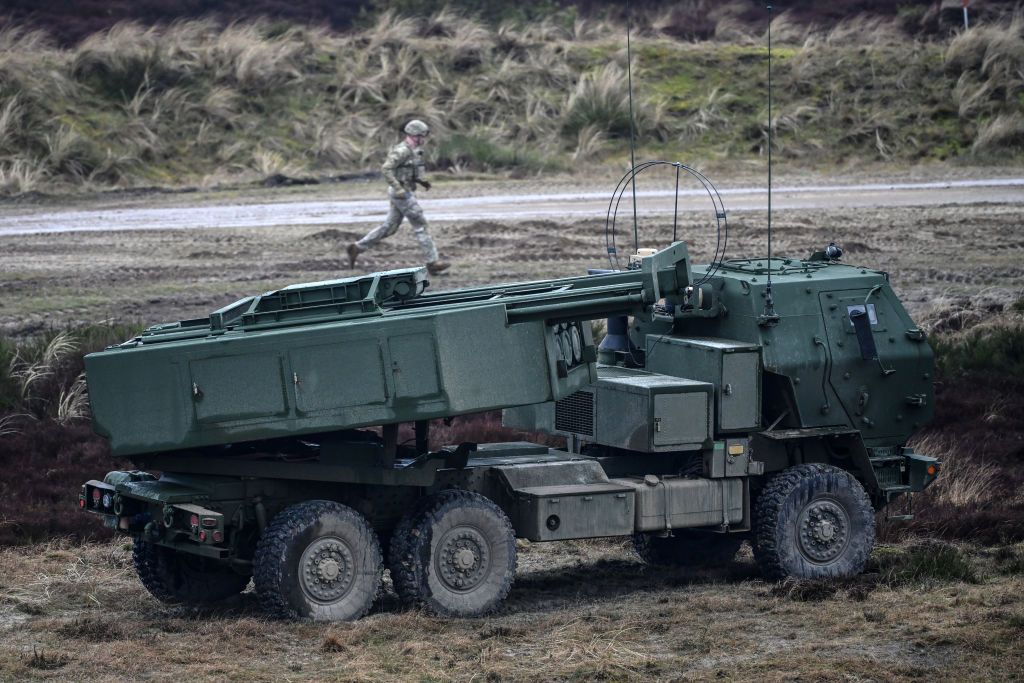
Chernihivgaz ensures gas supply to nearly 360,000 households. In addition, it regulates the distribution of natural gas to budgetary and religious organizations, industrial facilities, and 12 district heating companies in the region, Gazmerezhi explained.
According to Gazmerezhi, Volyngaz and Chernihivgaz are the 17th and 18th regional gas distribution companies, respectively, to come under state control since the beginning of the year. Both Volyngaz and Chernihivgaz were part of fugitive oligarch Dmytro Firtash's Regional Gas Company (RGC) Group. In SOE Weekly Issue 71, we reported that Naftogaz changed the management of regional gas distribution companies Kharkivgaz and Dniprogaz on Jan.
16. These gas distribution companies were part of Firtash's RGC Group. RGC accused Naftogaz of an "attempted raid." In response, Naftogaz referred to the Cabinet of Ministers' Decision No.
429-r dated May 28, 2022, which transferred the corporate rights of about 20 regional gas distribution companies to its subsidiary Chornomornaftogaz. Earlier in May 2022, Kyiv's Pechersk Court seized shares of Firtash's regional gas companies because they evaded payment for the use of gas networks. (After that, the Cabinet transferred these rights to Chornomornaftogaz.) RGC then filed lawsuits to overturn the Pechersk Court's decision. This delayed the change of management of these distribution companies.
In September 2022, Naftogaz established a new subsidiary named Gas Distribution Networks of Ukraine LLC to consolidate the regional gas distribution companies. In Issue 98, we reported on another wave of taking over Firtash's gas distribution companies, Sumygaz, Vinnytsiagaz, and Dnipropetrovskgaz. They were also part of RGC Group.
See more in Issue 98. In Issue 100, we reported that Ivano-Frankivskgaz, Khmelnytskygaz, and Mykolaivgaz, which were also part of RGC Group, joined Naftogaz Group. See more in Issue 100.
As we reported in Issue 104, Naftogaz took over another one of Firtash's gas distribution companies, Cherkasygaz. In Issue 105, we wrote that Naftogaz's branches received operating licences from the National Energy and Utilities Regulatory Commission (NEURC). Naftogaz's CEO Chernyshov interviewed. Naftogaz's CEO Oleksiy Chernyshov was interviewed by DW and Ukrinform this week.
We selected the key points. In his interview for DW, Chernyshov spoke about the following key issues: On gas tariffs:
- "The government's decision, and the overall position of the state, is that we cannot increase the [gas] bills during martial law.
Ukrainians are protected against increased tariffs by a cap that has been introduced before and is effective now."
Ukraine's GDP grows by 9% since last September Ukraine's GDP grew by 9.1% year-on-year, according to the Economy Ministry's preliminary estimates on Oct.
25. While the war is ongoing, the economic growth is proof of "the high ability of businesses to adapt to new challenges, as well as assistance from the state and international partners," Econo...
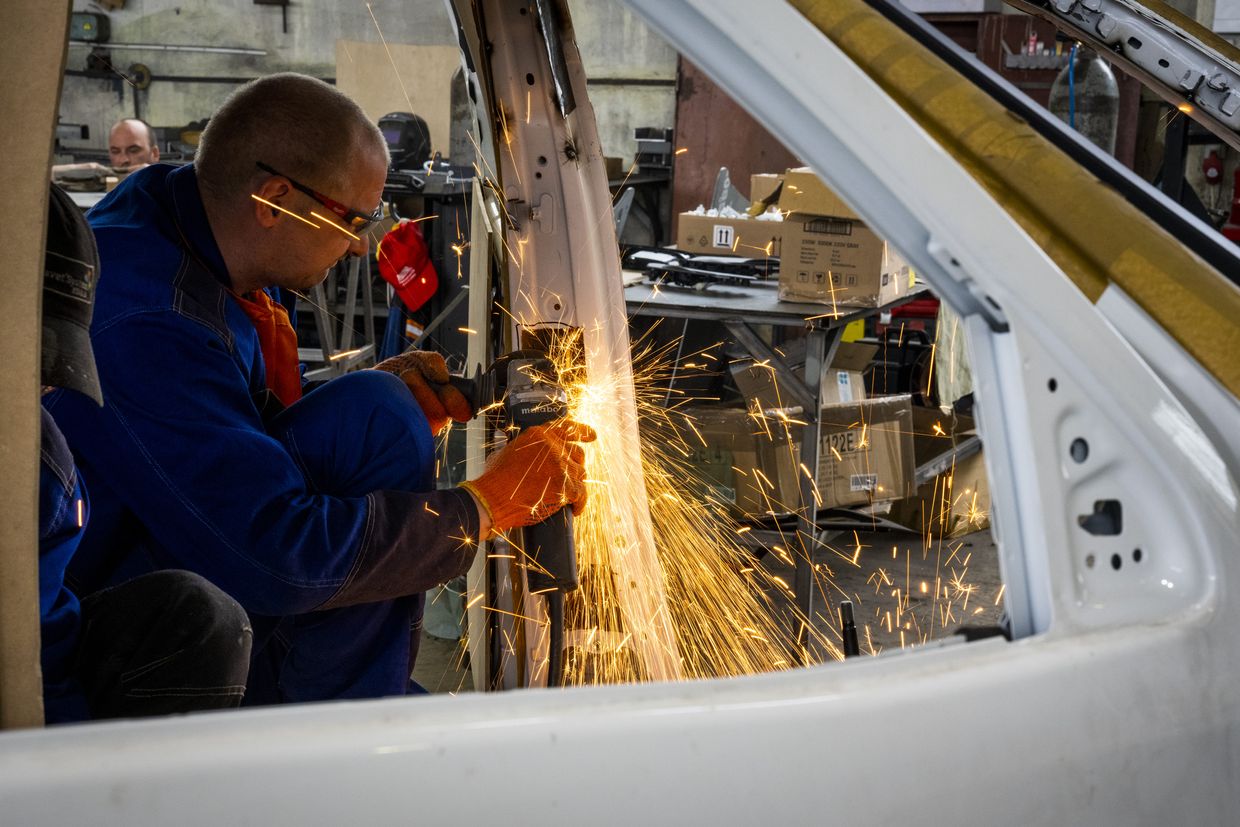
On the transit of Russian gas:
- "The only reason Ukraine is still transiting Russian gas is to support the EU countries, especially landlocked countries.
We do understand the position of the EU to fully refuse from using Russian gas by 2027. This has not happened yet, and we would support the EU countries during this winter."
- "The contract between Naftogaz and Gazprom (on gas transit - SOE Weekly) will be over by the end of 2024. At this moment, we are not in the position to renew it.
We consider that the EU would raise this issue in the coming months, though."
In his interview for Ukrinform, Chernyshov spoke about the following key issues: On underground gas storage facilities:
- "Both foreign and Ukrainian companies are interested in storing natural gas in Ukrainian storage facilities. This year we have actually managed to motivate European traders to store some gas in Ukraine even during the war."
- "These companies have instructed us to store gas without additional guarantees, at their own commercial risk - more than 2 billion cubic meters of gas worth more than 1 billion euros as of today.
We are also paid separately for storage, injection, and lifting."
. "These are various European countries, dozens of traders, the "majors" as we call them, large companies with Swiss, German, French, and Italian origins." As we wrote in Issue 103, Naftogaz reported that it met the gas storage goals set by the Cabinet of Ministers ahead of schedule. Meanwhile, the former CEO of the Gas Transmission System Operator of Ukraine (GTSOU) Serhiy Makogon claimed that Naftogaz was manipulating data, and its announcement was misleading.
See more in Issue 103. On Oct.
6, Chernyshov reported that Ukraine's underground gas storage facilities stored 2.2 billion cubic metres of natural gas from foreign customers. According to him, in the first nine months of 2023, despite the war and potential risks associated with it, Naftogaz Group's non-resident customer portfolio grew to 148 companies.
Defense
Ukrainian Defense Industry and Rheinmetall set up a joint venture. On Oct.
24, the Ukrainian Defense Industry (UDI) reported that it has established a joint venture with one of the world's leading defence companies, German concern Rheinmetall AG. According to UDI, the German-Ukrainian LLC "Rheinmetall UDI" (Rheinmetall Ukrainian Defense Industry LLC) was registered on Oct.
18. This is the first joint venture that UDI established with foreign partners, the company added.
The joint venture will repair and maintain armored vehicles transferred to Ukraine by partners. It will also jointly produce Rheinmetall products in Ukraine and develop advanced weapons with the participation of Ukrainian and German specialists, UDI explained. [Rheinmetall AG, headquartered in Dusseldorf, is one of the largest manufacturers of military equipment, weapons, and vehicle components in Europe.
The group consists of five divisions: Vehicle Systems; Weapons and Ammunition; Electronic Solutions; Sensors and Actuators; and Materials and Trade. With some 28,000 employees working in 132 locations worldwide, Rheinmetall's sales were 6.4 billion euros in 2022.
Demographic disaster: Ukraine's biggest post-war threat The threat of a demographic crisis has been building in Ukraine for a while but Russia's full-scale invasion has pushed it to the breaking point.
The country had a population of 41 million in 2021, by the government's reckoning. Now, it hovers around 35 million and experts warn

The group's sales are distributed geographically as follows: Germany (34.1%), the rest of Europe (30.8%), Asia (18.4%), the Americas (8.2%), and other regions (8.5%). Rheinmetall has a large institutional investor base (280 institutional owners and shareholders).
As of Dec.
31, 2022, 69% of its shares were owned by institutional investors and 21% by private shareholders. The largest shareholders were Harris Associates LP (11.6%), Wellington Management Co. LLP (5.08%), Capital Research & Management Co. (4.99%), and BlackRock Fund Advisors (2.35%).
In SOE Weekly Issue 88, we reported that Rheinmetall signed an agreement with UDI in May 2023 to set up a joint venture to repair tanks in Ukraine. According to the agreement, the German side will hold 51% of the shares and have the management rights. The cooperation will focus on the maintenance and repair of armored vehicles in Ukraine, while preparations will be made for the construction of tanks.
See more in Issue 88. As we wrote in Issue 97, Rheinmetall announced in early July that it would set up armoured vehicle production in Ukraine within the next 12 weeks.
Privatization
SPFU to sell its majority stake in Rivne Radio Engineering Plant for Hr 122 million. On Oct.
20, the State Property Fund of Ukraine (SPFU) announced an auction to sell its stake of 50% + 1 share in the Rivne Radio Engineering Plant. According to the SMIDA database, the state of Ukraine as represented by the SPFU is the only shareholder of the Rivne Plant owning a block of shares of 5% or more.
Based on public information, we have not been able to establish who owns the remaining shares of the Rivne Plant, and whether this ownership is effectively concentrated. The starting price is hr 121.6 million (£3.4 million). The auction will take place on Nov.
7. According to the SPFU, Rivne Radio Engineering Plant has not been operating since 2013 and "is an excellent brownfield project." It is located in Rivne, four kilometres from the M06 Kyiv-Chop international motorway. It also has utility connections and a large land area, the SPFU added.
The new owner is not restricted in terms of its intended use, so this lot could be a favorable option for relocating production to a region not close to the hostilities. Buyers would be required to repay the company's debts to employees and the state. As of 31 August 2023, wage arrears amounted to Hr 12.5 million (£344,000), and budget arrears were Hr 1.8 million (£50,000), the SPFU also explained.
President's Office: 4 killed, 9 injured as gale-force winds hit Ukraine
The winds, gusting up to 90 kilometers per hour, felled trees and blew debris around the city, damaging power lines.
In Kyiv alone, more than 250 trees have been knocked over, according to local authorities.
